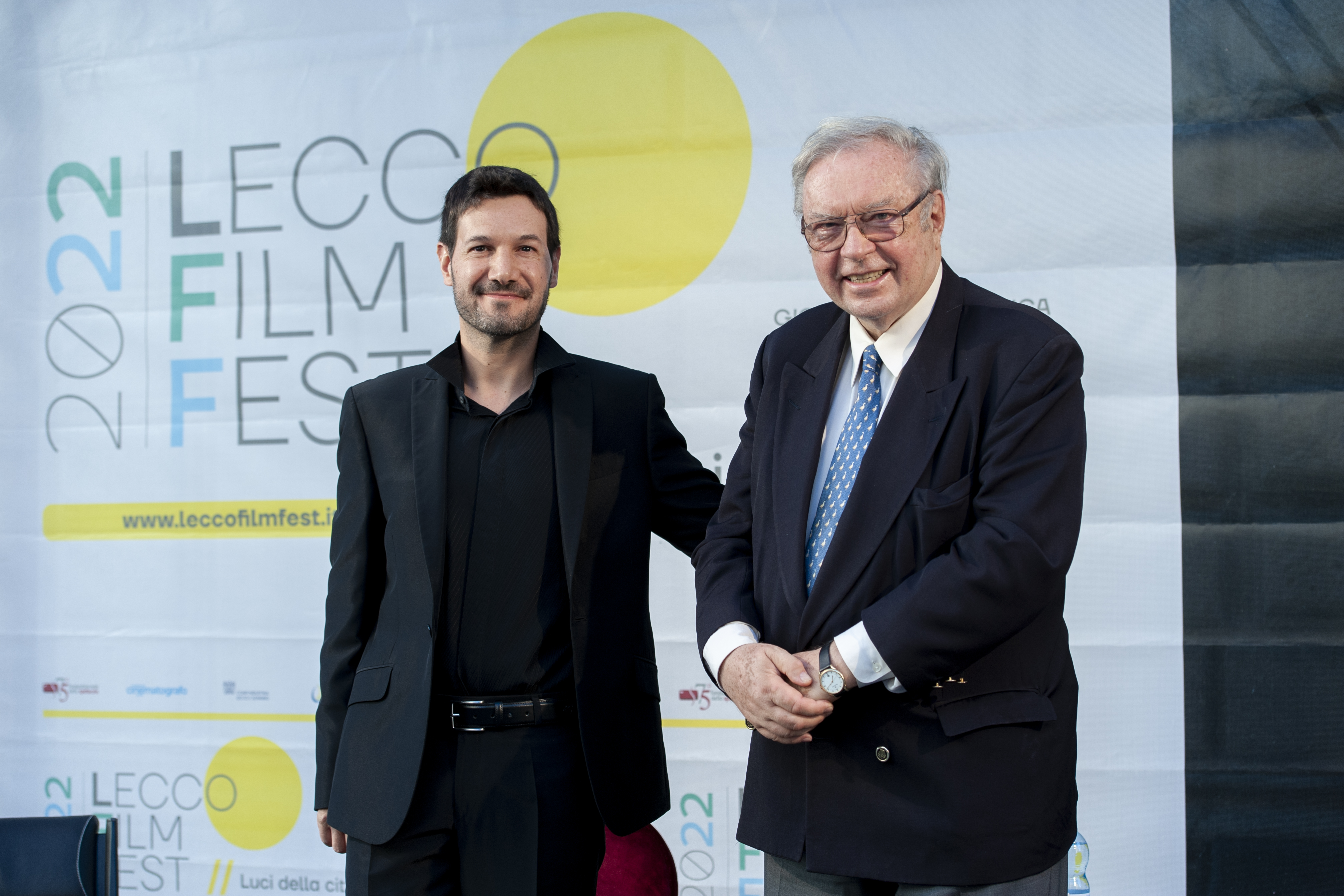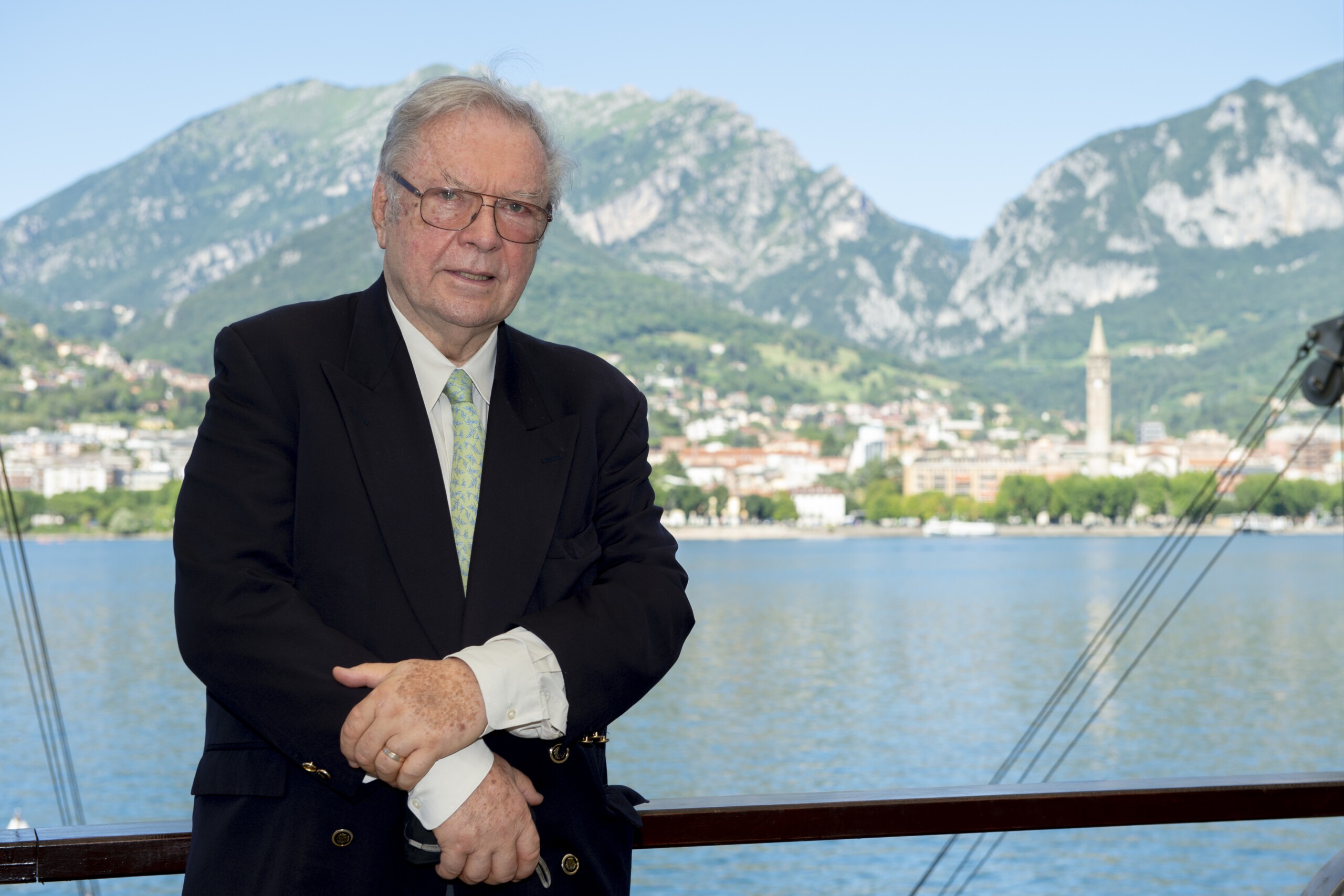He went through fifty years of cinema history, recounting the changes in Europe and addressing the great questions that man has always questioned: Krzysztof Zanussi is the great protagonist of the second day of the Lecco Film Fest, the festival organized by the Foundation Ente dello Spettacolo and promoted by Confindustria Lecco and Sondrio.
And he arrives at the Nuovo Cinema Aquilone to present to the public Foreign body, the film he wrote and directed in 2014. “More than an assessment of my work – explains the director in surprising Italian with a refined vocabulary – it is a denunciation against the dark side of progress. While contributing to the improvement of daily life, multinationals spread lies, violence, pressure, exploitation. I’m flattered to have annoyed certain executives who have been hostile with my film ”.
Hypnotic storyteller, Zanussi – interviewed by Gianluca Arnone, editorial coordinator of the Ente dello Spettacolo Foundation – says with a certain irony that he has surprisingly exceeded 80 years: “I had an adventurous life. I am of Friulian origins, my ancestors came to Poland to build railways. My father had a Mediterranean, volcanic temperament: from him, who freely expressed himself in a world where this was forbidden, I learned that it is better to be silent and that you should never scream“.
The young Zanussi arrived at the cinema after various paths: “From my generation, the war has stolen childhood. I was looking for certainties in a world dominated by the communist regime. I enrolled in the Faculty of Physics, it was a beautiful time but I was a mediocre student, the worst thing in the world. So I studied philosophy because I was interested in studying the tool of propaganda. Like many students, I did a lot of things without really understanding what I wanted, I did amateur cinema and got many awards. So I entered a film school with great expectations ”.
And then what happened? “I went to France, it was the dawn of the New Wave: he understood that films could be shot in a different way. But when I went back to school and took that lesson my own, my professors, who hadn’t traveled, called me an amateur. And they chased me away ”.
Some hostility even in the family: “Few fathers are happy if their children become directors, including mine. He wanted me to continue the family traditions. Until his death he tolerated it, but he was convinced that nothing could be built in celluloid. My mother was more indulgent ”. Yet Zanussi has become a leader of the so-called “third generation” of Polish filmmakers, a friend of fellow countrymen such as Andrzej Wajda, Krzysztof Kieślowski (“A family member, since school. His loss still weighs me down”), Agnieszka Holland (“Volcanic woman, she was my collaborator”).
Debut in 1969 with The crystal structure (“I wanted to use with different language, explore things not yet exposed”) and, after films like The spiral (“In a Communist country I was able to talk about death from a Christian perspective”), the great international success with From a distant country1981 biopic about Karol Wojtyła (“I could not dramatize or judge the life of Pope John Paul II. Diego Fabbri advised me to make a useful rather than a beautiful film. I made an illustrative one, supervised by the Vatican, with extras chosen from the parishioners of Rome. Filming was really lively: the actor who played Pius XII lost his false nose, the Swiss guards were at liberty in the churchyard … “).
Krzysztof Zanussi (photo by Stefano Micozzi)
The film had excellent feedback in the United States and Zanussi tried the overseas adventure: “It wasn’t for me. There you must always be on the side of the general public, I want to serve a more sophisticated one. Bertolucci and other European directors were mesmerized by American culture, we Poles did not have access to it until the age of thaw. European culture seemed more attractive to us. My generation never understood why the New Wave people considered Hitchcock a better director than René Clément, one who made smarter films“.
In 1983 he won the Silver Lion at the Venice Film Festival with The imperative: “A complex, religious film. I met Robert Powell, the Jesus of Zeffirelli, at a festival in India, I told him the story and he agreed to make films with a minimum wage. When we went to the Biennale, Vittorio Gassman told me that I had built a character tailored for Powell. So I suggested that he fit one for him too: after various adversities we were able to put up The power of evil, he shot his scenes in five days. We worked twenty hours a day, against all union rules ”.
Always dedicated to topics of great intellectual depth, dense with ethical and highly spiritual contents, Zanussi appears very worried about the current situation in Europe: “It is not surprising what Putin is doing: his goal is to return to the Soviet regime, to to occupy the territories that are now independent, to take away the freedom of countries that have chosen the western path. Diplomacy is an illusion: we must go back to the just wars of which St. Augustine spoke, because that of Ukraine is a battle for its survival as a civilization ».
Pessimist? “I’m not sure how society will be able to digest the pandemic and the war. In our culture, we never talk about death. Now we are forced to confront her. I do not consider myself a Cassandra but I am convinced that the third world war has already begun. Soon everything will be different, we must not panic but rethink our values and be ready to sacrifice something of our well-being and our comforts. But I see an awakening of idealism: in Poland we have 4 million Ukrainian refugees, it is something incredible also because our relations with Ukraine have never been idyllic. A few months I would have said to be pessimistic, today this thing gives me hope ».

Gianluca Arnone and Krzysztof Zanussi (photo by Stefano Micozzi)
A very long career, sealed by the Robert Bresson Award awarded to him by the Ente dello Spettacolo and the Rivista del Cinematografo in 2003. And that continues: in his next film, The perfect number, Zanussi’s two obsessions will return, physics and metaphysics. “The protagonist discovers that it is possible not to be a slave to the consumerism of advertising that creates invented needs: it is better to have less and feel better”.
And Zanussi does not hold back when faced with the question of questions: Does God exist? “I hope so, but I don’t give guarantees. Science must not prove its existence: it does not deny it and this is enough for me. I believe more in mystery than in faith. This is the first step. I think that if the universe is chaotic, it means that no one manages it: there is a greater being who controls and ensures that everything makes sense, that his plan remains impenetrable. Therefore I am convinced that it exists ».
Physics and metaphysics: Krzysztof Zanussi talks about himself – Cinematografo

